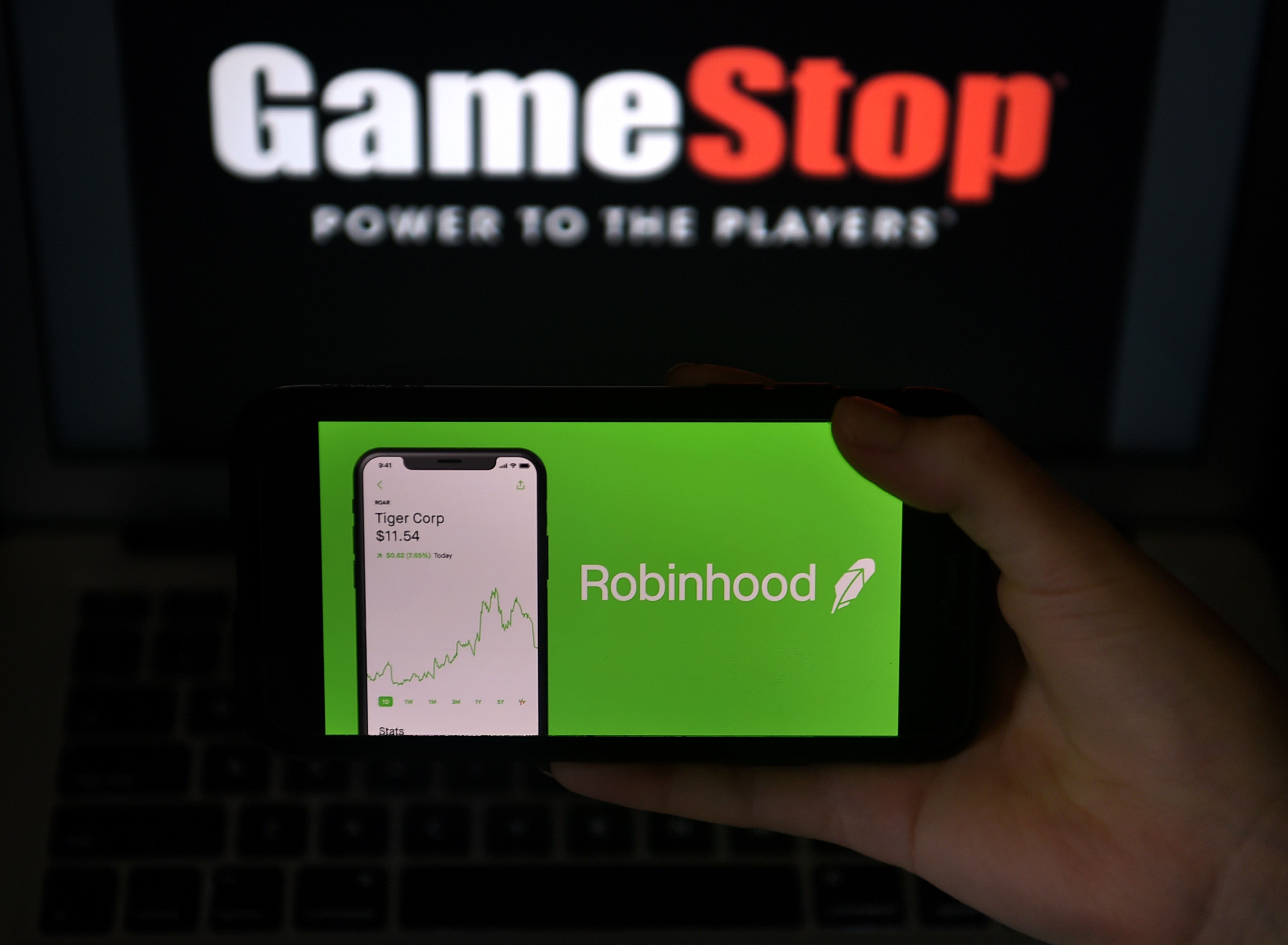
An epic battle is unfolding on Wall Street, with a cast of characters clashing over the fate of GameStop, a struggling chain of video game retail stores. The conflict has sent GameStop on a stomach-churning ride with amateur investors taking on the financial establishment in the mindset of the Occupy Wall Street movement launched a decade ago.
Olivier Douliery | AFP | Getty Images
LONDON — European regulators have warned retail investors against participating in financial markets “purely” based on information they gather from social media.
The GameStop phenomenon witnessed in the United States earlier this year brought to the fore the impact of coordinated retail investment, when many people used the social media platform Reddit to discuss their intentions to bet on the American games and consoles seller, leading its share price to move. Retail investors used commission free trading platforms such as Robinhood to get involved.
The main issue for regulators is that some of these investors were not fully aware of the details of the transactions.
“What we have done as a securities regulator is that we have alerted investors to the risks of, for example, investing purely based on information coming from social media,” Steven Maijoor, chair of the European Securities and Markets Authority, told CNBC’s Squawk Box Europe.
“And you can question is it proper investing, when you want to save for the future, when you invest a major part of your portfolio only in one stock” he added.
Many retail investors put a big chunk of their savings on GameStop and some earned a good return. However, others also lost money when the shares plunged and in some cases were left wondering how they would be paying their next rent.
You should not give misleading information on prices, on supply and demand.
Steven Maijoor
chair of ESMA
This has led market regulators to step in and warn non-professional investors they might be engaging in market manipulation, which is illegal.
“In addition to that we have also alerted the investors to the risk that when they participate in these conversations in social media they need to be careful and need to be aware of certain requirements around the market abuse, and around avoiding market abuse in financial markets. For example, you should not give misleading information on prices, on supply and demand,” Maijoor said.
In a parliamentary hearing last month, Maijoor explained that “coordinated strategies to buy and sell at certain conditions and at a certain point in time with the objective to inflate the share’s price could constitute market manipulation.” Arguably, the GameStop saga included elements of a coordinated effort to prop up the stock price of the videogame seller.
The regulator said it is monitoring developments around retail investment and has said it will be scrutinizing the business models of the trading platforms used by retail investors.
Though European stocks have not experienced a similar situation, more and more Europeans are engaging in retail investment, marking a sharp contraction with previous investment behavior in the region.
Recent data, for example, showed that the number of Germans who own shares directly or via funds rose by 2.7 million to 12.4 million in 2020. The numbers shared by Deutsches Aktieninstitut, which represents German publicly traded companies, and reported by the Financial Times, also showed that the largest rise among market participants happened in the under 30 age group.
“We are generally positive on a greater retail participation in capital markets in Europe,” Maijoor said.
“We have had much more reluctance, at the European side, by households to participate in capital markets. It is important that they do that (participate in financial markets) so they can better save for educational expenses, for housing expenses, for retirement and so that is clearly a positive,” he added.




